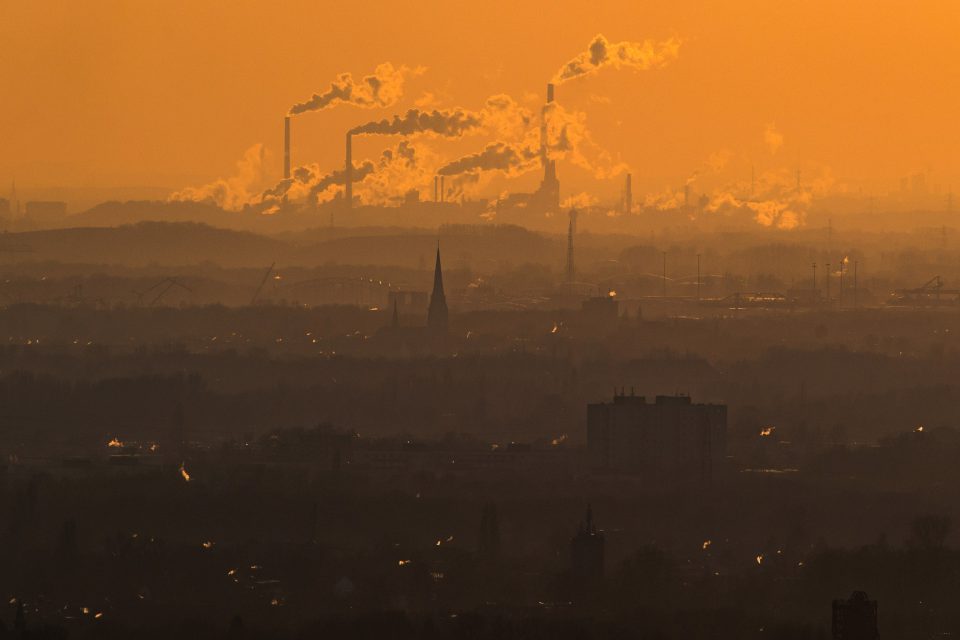The West’s view on climate change condemns millions
The stumbling blocks of the climate crisis remain vested in the stubbornness of advanced countries to admit having caused the problem, and to change their practices.
Author:
10 December 2019

In Madrid, Spain, the 2019 United Nations Climate Change Conference – known as COP25 – began on 2 December. Representatives of the world’s countries gathered to discuss what is decidedly a serious problem for the planet; no one, except dangerous political forces in the neofascist right, denies the reality of climate change. What prevents a transfer from carbon-based fuel to other fuels is not the stubbornness of this or that country. The main problems are three:
- The right wing that denies climate change;
- Sections of the energy industry that have a vested interest in the continuation of the use of carbon-based fuels; and
- The refusal by the Western advanced countries to admit both that they have caused the problem and that they should use their vast wealth to finance the transfer from carbon-based fuels to other fuels in countries whose wealth has been siphoned off to the West.
The first two blockages – the right wing and sections of the climate industry – are related, as it is often money from the climate industry (the Koch brothers, for instance) that finances the climate deniers and sows confusion about the immense reality that confronts us.
The third blockage is serious, and it has prevented the UN process from bearing fruit. At the Rio Earth Summit of 1992, the countries of the world negotiated a UN Framework Convention on Climate Change. In that document – which was ratified at the General Assembly two years later – the governments agreed to a key principle, namely that the impact of colonialism cannot be divorced from discussions of the climate crisis.
“The global nature of climate change,” the parties wrote, “calls for the widest possible cooperation by all countries and their participation in an effective and appropriate international response, in accordance with their common but differentiated responsibilities and respective capabilities and their social and economic conditions.”
Common and differentiated responsibilities
The main phrase here to consider is “common but differentiated responsibilities.” This means that the problem of climate change is something that is common to all countries, and that no one is immune to its deleterious impact; at the same time, the responsibility of countries is not identical, and some countries – which benefited for centuries from colonialism and carbon fuel – have a greater responsibility for the transition to a less damaging energy system.
There is little scholarly debate on the fact that certain countries in the West benefited inordinately from both colonialism and carbon fuel. A look at the data from the Carbon Dioxide Information Analysis Center’s Global Carbon Project shows that the United States of America, by itself, has been the largest dispenser of carbon dioxide emissions since 1750. The main carbon emitters were all colonial powers, namely European states and the US. From the 18th century, these countries have not only dispensed the bulk of the carbon into the atmosphere, but they have also continued to exceed their share of the Global Carbon Budget.
Related article:
Carbon-fuelled capitalism, enriched by the wealth stolen through colonialism, enabled the countries of Europe and North America to enhance the wellbeing of their populations. The extreme inequalities between the standard of living for the average European (742 million people) and the average Indian (1.4 billion people) is as stark as it was a century ago. The reliance by China, India and other developing countries on carbon – particularly coal – is high; but even this use of carbon has not raised the per capita emissions of China and India above that of the US, whose per capita emissions are almost twice as much as China’s per capita emissions.
Green Climate Fund
The Framework Convention recognised the importance of colonialism, the geographical divergence of industrial capitalism and its impact on the carbon budget. That is why the countries at Rio agreed to create a Green Climate Fund. The West was asked to make substantial contributions to the fund, whose capital would then be used to assist developing countries to “leapfrog” carbon-fuelled social development.
It was hoped that the fund would draw in a minimum of $100 billion by 2020. The US pledged $3 billion but has only contributed $1 billion. US President Donald Trump has blocked any further contributions to the fund (Bernie Sanders, in contrast, said he would pay $200 billion into the fund, while the United Kingdom’s Jeremy Corbyn pledged to use his country’s leverage over the World Bank’s Climate Investment Funds toward “climate justice for the Global South”). Australia and Russia have also paused contributions. No real appetite exists to expand this fund; there is little expectation that it – or the concept of leapfrogging – will be taken seriously at COP25.
The $100 billion figure is very conservative. The International Energy Agency suggests each year in its World Energy Outlook that the actual figure is in the trillions. None of the Western powers have intimated anything like a commitment of that scale to the fund.
Attack on coal
It is far easier to attack China and India, and other developing countries.
In early November, UN Secretary-General António Guterres addressed the press after his participation in the UN-ASEAN (Association of Southeast Asian Nations) meeting in Bangkok, Thailand. He mentioned neither the concept of “common but differentiated responsibility” nor the Green Climate Fund.
Tellingly, the secretary-general made three proposals, each of which says nothing to the main principle of “differentiated responsibility”:
- Taxes must be placed on carbon emissions;
- Trillions of dollars of subsidies for fossil fuels must end; and
- Construction of coal-fired power stations must end by 2020.
None of these proposals per se would raise eyebrows. In fact, given the gravity of the reports coming in from the Intergovernmental Panel on Climate Change, there is no doubt that action is necessary.
Related article:
But what kind of action? These three proposals would directly strike at the energy sources for countries that have not yet provided electrification for their populations, or where their people are far from the UN’s Sustainable Development Goals. Southeast Asia, where Guterres made these remarks, only anticipates full electrification of the region by 2030.
Advanced industrial states, such as the UK and Germany, have said that they will phase out coal by 2040. These are countries that have created the Powering Past Coal Alliance (backed by the Bloomberg New Energy Finance, one of the major capital funds that seeks to make money off the Green New Deal). There is money to be made here for venture capitalists; they are not going to contribute the billions needed for the Green Climate Fund. No philanthropy by the billionaires will be willing to donate their money into the fund; the tax-free money they make on the “green transition” will eclipse the tiny amounts of money they will donate for a non-carbon future.
Ugly choice
Meanwhile, developing countries have an ugly choice before them: to forgo carbon, the cheapest fuel, and then forgo social development for their populations; or to continue to use carbon and threaten the planet. These are the only choices if the advanced industrial states refuse to fund the Green Climate Fund, and if they refuse to transfer technology for wind and solar to countries without any financial obligation.
A Green New Deal in the West is not going to be sufficient if this deal does not include trillions of dollars into the UN’s Green Climate Fund and the transfer of technology as a social practice and not for profit.
This article was produced by Globetrotter, a project of the Independent Media Institute.


